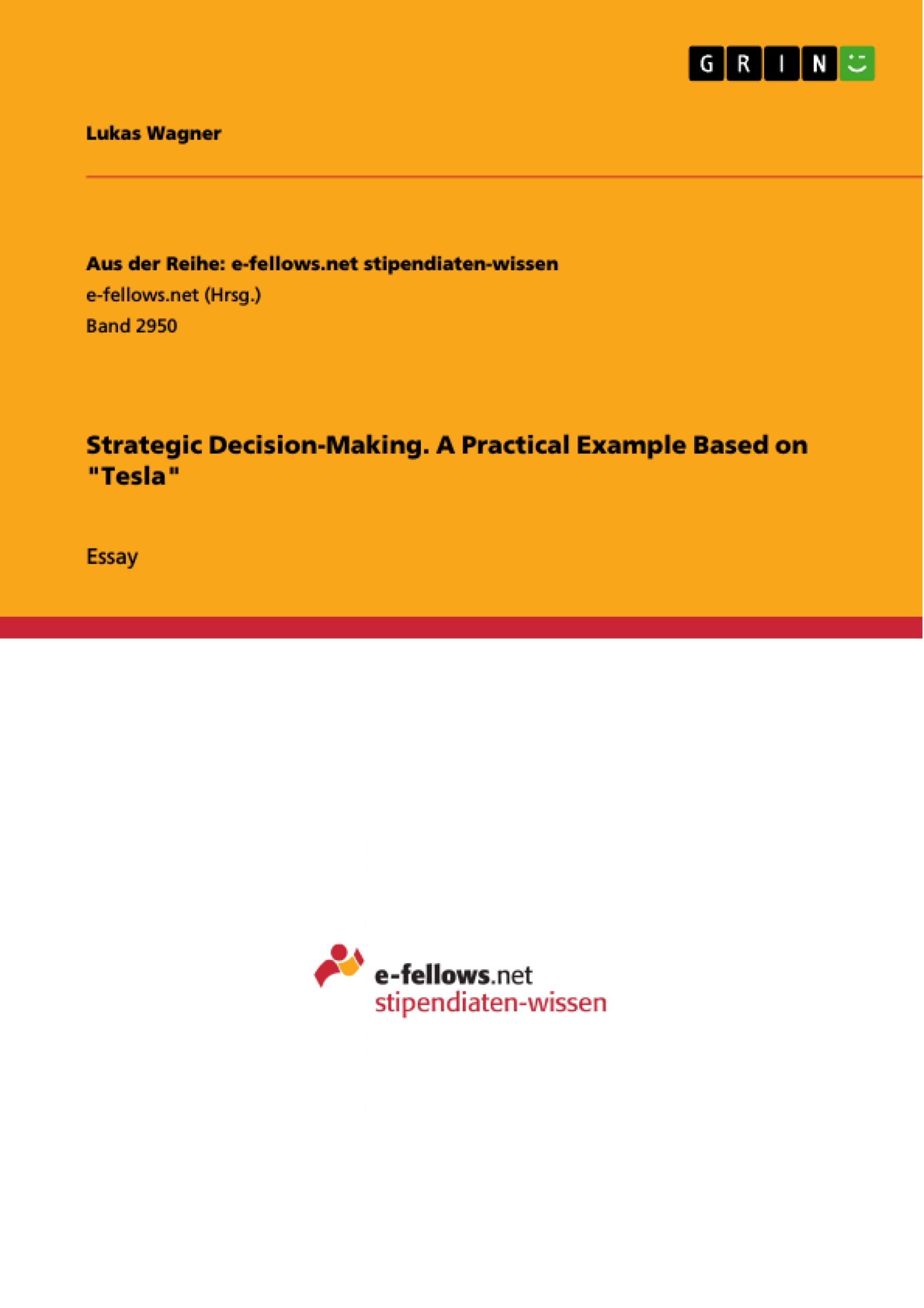Decision making is a fundamental skill for any successful executive. But decisions at strategic level are hard to make. They require large amounts of resources and commitments which may be irreversible. They involve long-term consequences that are hard to predict. And, they require considering multiple, often conflicting, strategic objectives which are difficult to balance, particularly in the presence of risk and uncertainty. Research and thinking about modern business strategy emerged as a field of study and practice in the 1960s. Prior to that time, the words "strategy" and "competition" rarely appeared in the most prominent management literature. When influential academics in the USA started to think fundamentally about strategic decision making in the 1980s and ‘90s, they made the assumption that everything works in a competitive working, free market and developed thereof generic strategy tools, that are supposed to work everywhere.
However, Elmes (the guest speaker) argues that they are not well founded, since strategies need to be developed in the respective context of an industry or market. This position will be explained in more detail during this essay. Especially the determinant of market efficiency, meaning how competitive a market is, strongly influences the development of strategic decisions. There are many industries where government involvement or asymmetric competition need to be considered to make strategic decisions, whereby generic strategy tools tend to be ineffective. Therefore, the key questions for this essay will be firstly what are the traditional concepts of strategy and how have they involved, secondly what actually makes a strategy successful and lastly how does it apply in practice.
Inhaltsverzeichnis (Table of Contents)
- Introduction
- The development of strategy approaches
- What makes a strategy successful
- The practical strategy advisor perspective
- BCG/Adaptive Strategy
- Booz&Company
- "The Coherence Premium"
- "The Capabilities Premium"
- Tesla as an example for strategic decision making
Zielsetzung und Themenschwerpunkte (Objectives and Key Themes)
This essay explores the evolution of strategy concepts and investigates the key factors contributing to strategic success. It examines the shift from traditional planning-based approaches to a more dynamic and context-sensitive understanding of strategy. The essay also analyzes the role of market efficiency and the interplay of internal and external factors in shaping strategic decisions.
- The evolution of strategy concepts from planning-based to context-driven approaches.
- The significance of market efficiency and its impact on strategic decision-making.
- The interplay of internal resources and capabilities with external market dynamics.
- The importance of dynamic capabilities for adapting to changing market conditions.
- The role of practical strategy advisors in shaping modern strategic thinking.
Zusammenfassung der Kapitel (Chapter Summaries)
- Introduction: This chapter introduces the central theme of strategic decision-making, highlighting its complexity and the evolution of strategic thinking from a focus on competitive markets to a more nuanced understanding of context and dynamic capabilities.
- The development of strategy approaches: This chapter traces the historical development of strategy concepts, from the traditional view of strategy as a plan to the emergence of more dynamic and process-oriented approaches. It discusses the limitations of traditional planning-based approaches and the growing emphasis on adapting to changing market conditions.
- What makes a strategy successful: This chapter explores key determinants of strategic success, focusing on the position-based view and the resource-based view. It examines how firms can achieve competitive advantage by leveraging their position in the market, differentiating their offerings, and deploying their resources and capabilities effectively.
- The practical strategy advisor perspective - BCG/Adaptive Strategy: This chapter delves into the perspective of the Boston Consulting Group, which advocates for an adaptive approach to strategy. It emphasizes the importance of dynamic capabilities, responsiveness, and resilience in navigating turbulent market environments.
Schlüsselwörter (Keywords)
Key themes and concepts explored in this essay include: strategic decision-making, strategy concepts, market efficiency, competitive advantage, dynamic capabilities, position-based view, resource-based view, adaptive strategy, BCG, Booz&Company, Tesla.
- Quote paper
- Lukas Wagner (Author), 2017, Strategic Decision-Making. A Practical Example Based on "Tesla", Munich, GRIN Verlag, https://www.grin.com/document/451749




